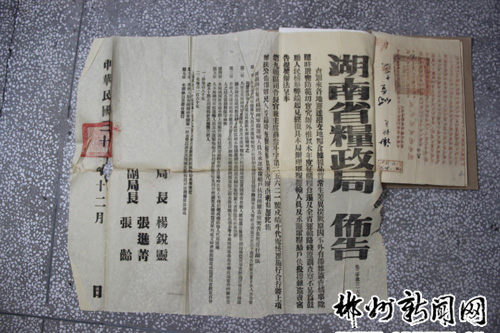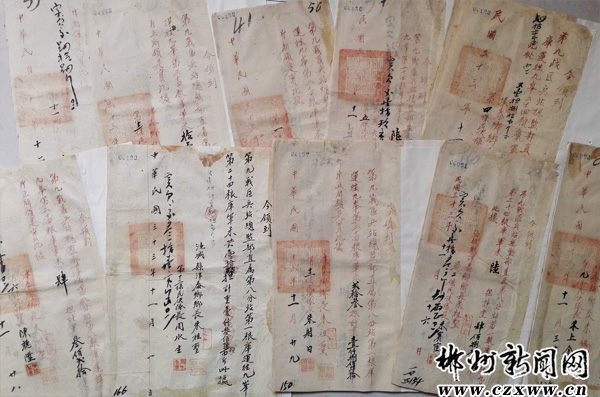Rucheng People Collected Funds and Foods to Support Anti-Japanese War
It was learned from Rucheng Archives Bureau that though it was the rear area, Rucheng people lived frugally to save some money and foods to support Anti-Japanese War during that peirod.

The notice for regulation of grain levies issued by Hunan Provincial Grain Bureau in 1942
According to the archives of Rucheng county: 189,000 loads of grains were collected by Rucheng county in 1937 and all were delivered to the frontline; in July 1938, an “money donation activity for Anti-Japanese War” was held in Rucheng county to celebrate the one year anniversary of Anti-Japanese War; in 1943, Nationalist Government released “public bonds of wartime” in Rucheng county and dispatched 28 teams to the towns and villages of Rucheng county to collect the funds with the amount of 110,000yuan; Hunan Provincial Party Headquarters, Hunan Government and Chief Commander Office of 9th Theatre which were headed with Xue Yue were moved to Rucheng county after failed the defending of Changsha and Hengyang city, and local government collected one million kilograms grains urgently.

Receipt of the claim of grain in 9th theatre
During the 8-year Anti-Japanese War, thousands of Rucheng people joined in the army to fight against the Japanese enemies. 167 people as Zhu Yuping, Deng Ju, Ye Zhengyu, Yuan Xianbing, and etc. died in the war, and more than 1200 heroes were disabled. After the victory of Anti-Japanese War, Xue Yue- the Chief Commander of 9th Theatre and Rucheng Government established a War Memorial in the west of Rucheng county and also established a martyr in Confucious’ Temple to memorize the martyrs.





